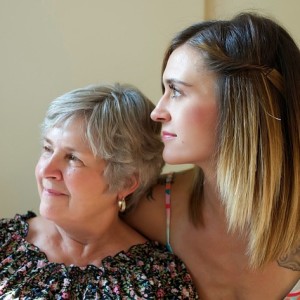 Approximately one-third of seniors suffer from Alzheimer’s and dementia. This alarming statistic is a reality, and it’s important to be aware of what it could mean for your family and friends. It’s never easy to deal with a loved one suffering from these diseases, but understanding what they’re going through and how it impacts your lives is a crucial piece in providing them the care they need.
Approximately one-third of seniors suffer from Alzheimer’s and dementia. This alarming statistic is a reality, and it’s important to be aware of what it could mean for your family and friends. It’s never easy to deal with a loved one suffering from these diseases, but understanding what they’re going through and how it impacts your lives is a crucial piece in providing them the care they need.
Here are five things that everyone should know about Alzheimer’s and dementia:
1. Alzheimer’s and dementia are not natural in the aging process
While it is true that people typically begin showing signs of forgetfulness and confusion as they become older, it is not just a product of aging. Dementia and Alzheimer’s are caused by the deterioration of the brain and go far beyond forgetfulness and the natural aging process.
2. Alzheimer’s is a progressive disease
At this point, there is no cure for Alzheimer’s and other forms of dementia, and the diagnosis typically doesn’t improve as time goes on. Various symptoms will continue, and others will begin to appear slowly. According to Alzheimer’s Care Daily, people generally live 8 – 10 years after being diagnosed with Alzheimer’s or dementia.
3. It’s not just memory loss
Most people think that the only effect of Alzheimer’s and dementia is memory loss. While that is a huge part of it, it’s usually not the only symptom. These diseases also affect the way people communicate, react and feel, as well as their ability to do daily tasks. They may have outbursts, strong changes of opinion, or refuse to do what they’re asked.
4. Getting care at the start may help for the future
While Alzheimer’s is progressive, getting your loved one comfortable with a caregiver, and possibly a routine, in the early stages of the disease may help during later stages, when they are not likely to recognize people and places. Having a caregiver in the beginning can also help the family transition through these changes and have the peace of mind that their loved one is well supported and taken care of by a professional
5. Exercise can help!
We all know that regular physical activity benefits your health at any age. Getting the blood flowing helps by improving cardiovascular health, boosting circulation and lymphatic movement to prevent diseases, managing weight gain, and can help prevent injuries by strengthening and stretching connective tissues.
The same is true for those battling Alzheimer’s and dementia. The physical stimulation and oxygen sent to the brain helps improve overall health, clarity and happiness. Taking a light stroll, doing yoga or pilates, and practicing breathing exercises are all great examples of activities. Just make sure that the senior is appropriately supervised – especially during walks in the neighborhood or activities that involve risk, such as swimming.
While there is no cure (yet!), it is still possible for someone to live a good life with Alzheimer’s and dementia. According to the Alzheimer’s Association, people can live regular lives with dementia. They just face new challenges, mental changes, and find certain activities difficult.
While we wait for medical advances in Alzheimer’s treatment and care, it’s important to know that you’re not in this alone. There are many skilled caregivers and nurses who can help guide you through the process.
Learn how to keep your loved one at home for as long as possible.

